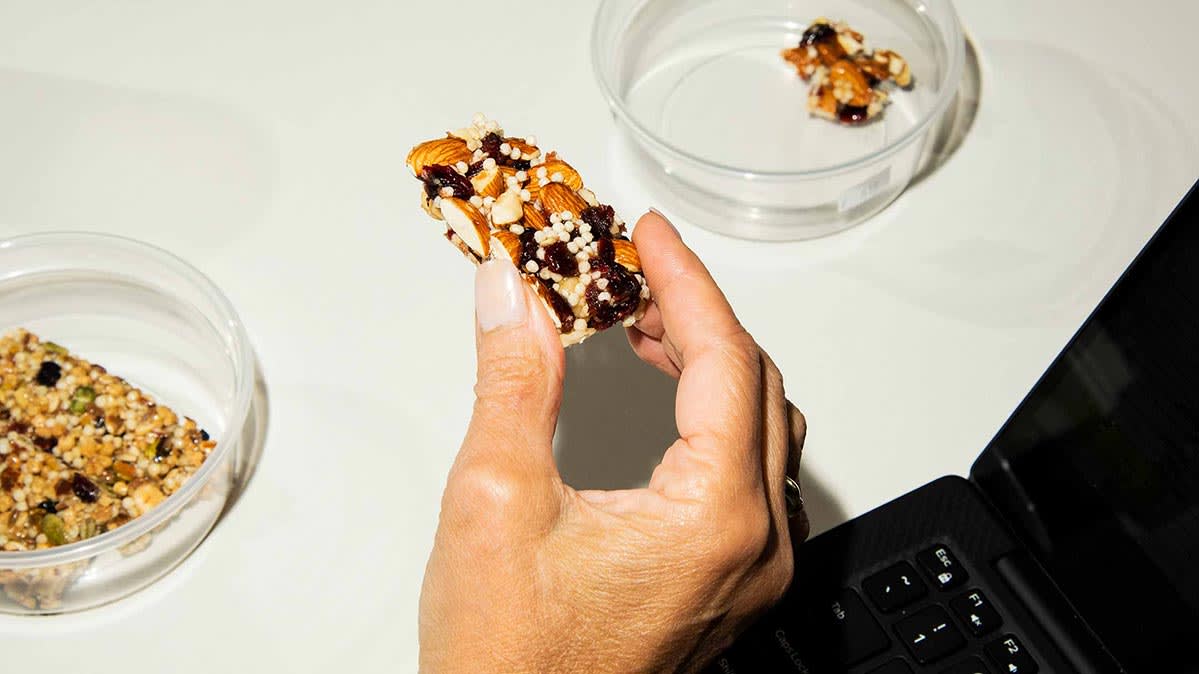Posted by topblog on May 5, 2019
When you’re watching macros it’s critical to understand what makes up all of your nutrition including your protein supplements. From protein bars, cookies to protein flapjack bars, each product is different.
What constitutes the perfect protein bar will differ from person to person. If your goal is building lean muscle mass, then you’ll probably be looking for a different product to to someone who is looking a for a low sugar protein bar that’ll keep hunger pangs at bay between meals!

Protein plays a number of hugely important roles in our body, from repairing and rebuilding muscles to maintaining bone health. It’s also highly satiating, so we feel more full after eating protein than after eating carbohydrates.
Not getting enough protein in your diet can impede your ability to recover and increase muscle mass properly, that doesn’t necessarily mean it’s only important to bodybuilders though, anyone who exercises regularly will benefit from increasing protein in their diet.
In the worst case scenarios, getting too little protein can result in muscle atrophy, wherein your body uses up your muscle mass to repair old tissue.
Consuming protein immediately after exercise is the most important period to consume protein as this is when your muscles critical stage of recovery begins. This is why protein bars and flapjack bars have become so popular in the last few years as post workout/exercise snack.
How much protein we really need after exercise will vary depending on how much work you’ve put in, your body weight etc. Roughly, it’s recommend that you consume between 15-30 grams of protein after a workout for maximal results.
It’s important to know that cramming more protein in won’t make a difference. Once we’ve finished digesting protein our body has no way of storing any that isn’t used meaning the rest gets…uhh….binned, so to speak.
Obviously protein bars are ideal thanks to their convenience as an on-the-go snack. Whereas carrying a bag of nuts or chicken might not be so convenient…
If you follow a plant based diet, you’ll be glad to know there are more and more vegan protein bars and vegan protein flapjacks appearing on the market using soy or pea based proteins rather than whey.
If you’re looking for an all round protein bar, the obvious choice is a low sugar protein bars. These bars have become extremely popular over the last few years. Typically they contain around 20g of protein (which is ideal) and less than 2g of sugar. Some of these bars focus on being low carb too, however it’s arguably important to get a good hit of carbs (or even sugar, immediately after exercise).
These low sugar bars usually contain a lot of sweetener like maltitol or xylitol. While there’s nothing wrong with these artificial sweeteners (contrary to misguided popular belief, they’re perfectly safe) some people find that they can be uncomfortable on the stomach.
The ideal 60g low-sugar protein bar will usually contain around 20g of protein, between 20g and 30g of carbohydrates and less than 10g of fat (less is more here, especially when it comes to saturated fat, which is often used in high amounts in protein bars to add depth of flavour to the chocolate).
However, If you’ve just finished working out, a bar with a little bit of sugar might not be a bad thing. Immediately after exercise, your muscles recovery will be kickstarted if you’re able to replenish their glycogen and ATP supplies, which a quick boost to blood sugar will do.
If you’re looking for a protein bar to enjoy during exercise, maybe you’re a runner or cyclist and expect a long day aim for a energy protein bar. These bars are usually made using lots of fruit and nuts with a good balance between low and high GI-carbohydrates, aswell as vitamins and minerals.
As protein is harder to digest than carbohydrates and sugar, many high protein energy bars contain a little less protein than other bars. I’d recommend going for a bar with no more than 15g of protein while you’re exercising, and don’t be put off by large amounts of sugar.
While nothing will replace a proper meal, for the occasional meal skip when you’re busy, Meal replacement protein bars are a convenient way of packing in a suitable amount of calories on-the-go.
A good meal replacement bar will balance well with your macro goals. Good meal replacement bars consist of roughly of around 20g of protein, 30g of carbs and a low amount of sugar. Unlike normal low sugar bars they’re typically fortified with large amounts of fibre and a range of vitamins and minerals.
This might come as no surprise but there obviously isn’t a perfect protein bar as everyone’s goal is different. You might able to find the perfect bar to suit your needs at that specific moment though!
Publish Lycos.com Blog
Simple Theme from Nimbus Themes - Powered by WordPress
